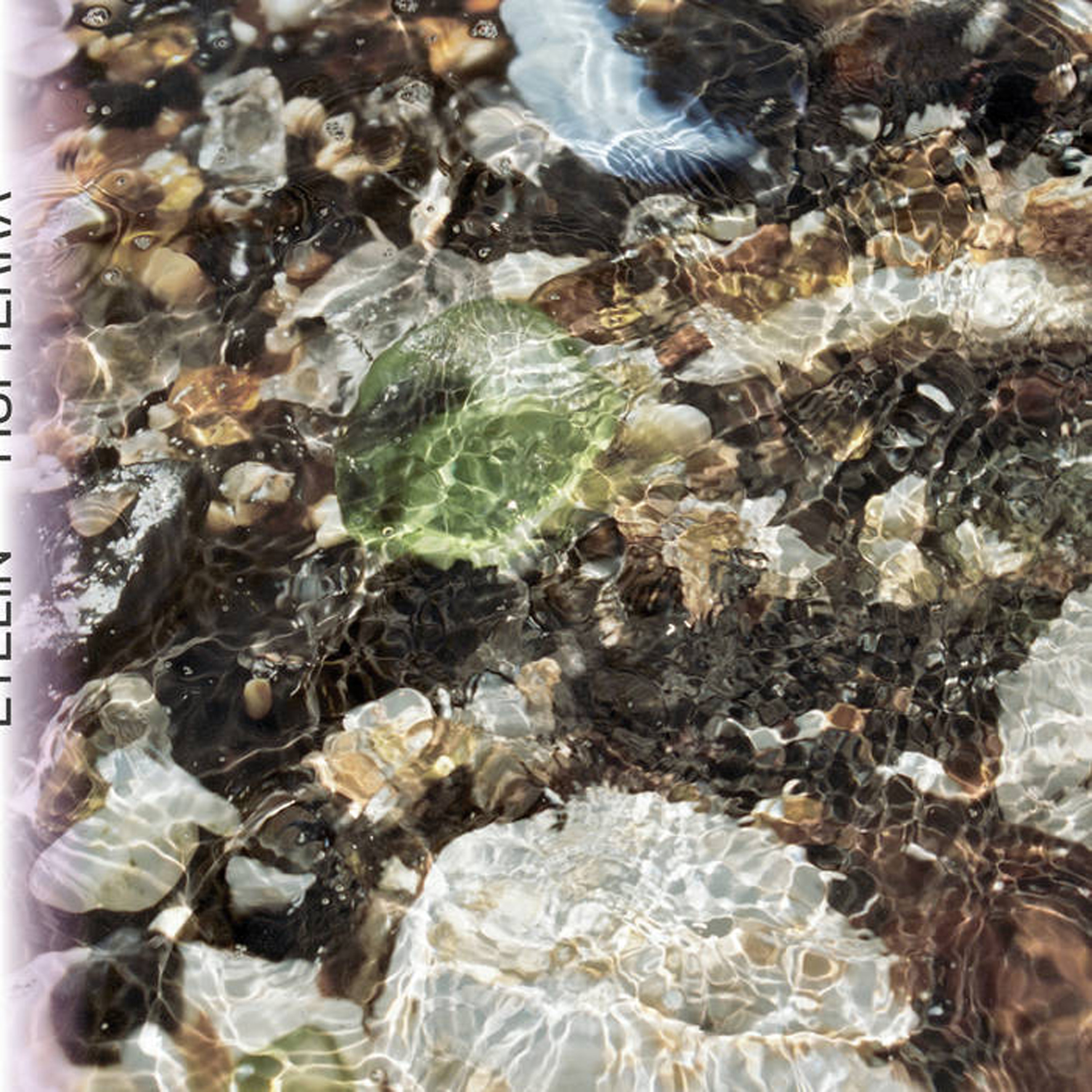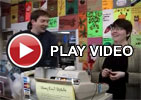Etelin, "Hui Terra"
 Etelin is the newest project from Students of Decay label head Alex Cobb, marking quite a radical break from the ambient drone of his previous oeuvre. That transformation stems largely from Cobb's frustration with the current experimental music scene, which has calcified into various genres and trends in recent years, losing much of the playfulness and actual experimentation that made the milieu so initially compelling. Obviously, Cobb is not alone in that feeling, as there are several outliers currently making groundbreaking and unique work (Cam Deas and Rashad Becker spring immediately to mind), yet Hui Terra is very much an unusual album that pointedly and willfully turns its back on the zeitgeist. At its best, the album hits some sustained passages of dreamlike beauty, but the bulk of Hui Terra is a bit more modest in its ambitions, unfolding like a more fragmented and hallucinatory re-envisioning of classic GRM fare.
Etelin is the newest project from Students of Decay label head Alex Cobb, marking quite a radical break from the ambient drone of his previous oeuvre. That transformation stems largely from Cobb's frustration with the current experimental music scene, which has calcified into various genres and trends in recent years, losing much of the playfulness and actual experimentation that made the milieu so initially compelling. Obviously, Cobb is not alone in that feeling, as there are several outliers currently making groundbreaking and unique work (Cam Deas and Rashad Becker spring immediately to mind), yet Hui Terra is very much an unusual album that pointedly and willfully turns its back on the zeitgeist. At its best, the album hits some sustained passages of dreamlike beauty, but the bulk of Hui Terra is a bit more modest in its ambitions, unfolding like a more fragmented and hallucinatory re-envisioning of classic GRM fare.
Aside from being the birth of a new solo project, Hui Terra is also the inaugural release of a sister label to Students of Decay (Soda Gong) that will focus on work with "a sense of playfulness and a sort of willful naivety."Though it pains me to be driven to such a glib segue, I have to note that this album was partially inspired by another birth as well: that of Cobb's son.Much like Koen Holtkamp's new album recorded under similar circumstances, sleep-deprivation and being awake at odd hours were a major factor in the shaping the Etelin aesthetic.To his credit, Cobb took that disruption of his established patterns and ran with it, selling off much of his usual gear and starting anew with a digital synth and a sampler.Similarly, he made a concerted effort to approach music with fresh ears, using his son as kind of a sounding board for new ideas after noting that he responded most strongly to the textures and dynamics on albums by Bernard Parmegiani, Luc Ferrari, and Nuno Canavarro.While none of these pieces are conspicuously derivative of those artists, Cobb is definitely fond of "early electronic music" sounds, as the foundation of Hui Terra is generally smeared, woozy synth tones and textures that sound like a lysergic vibraphone.
The most compelling passages on the album are the ones that transcend that aesthetic, however, and Cobb explores a variety of divergent ways to achieve that.Notably, the single most beautiful piece on the entire album, "Been Really Good Today," barely feels like a composition at all.Instead, it sounds like the deep, languorous chiming of large wind chimes subtly augmented with an occasional snatch of buried speech and field recordings.It feels like a wonderfully egoless window into a warm and sleepily lovely domestic scene, yet Cobb's production handiwork is apparent in the way that the deep tones leave a lingering and quavering haze in their wake.Cobb displays a truly impressive lightness of touch and intuitive grasp of when to avoid intrusiveness.That approach is the exception rather than the rule, however, as the rest of Hui Terra tends to be more conspicuously crafted and self-consciously experimental.For example, the outré "Little Rig" culls many of its sounds from Cobb's son, unfolding as a disorienting miasma of splattering, squelching, gurgling, and cooing textures before cohering into a lilting and dreamlike coda of blurred melody.Elsewhere, "Hour Here Hour There" feels like a limpid lost private press New Age piece before unexpectedly blossoming into a gently hallucinatory chorus of psychedelically tweaked frog recordings."We Don’t Have to Eat Our Hands" has some great moments as well, as the wobbly, buzzing and fragmented opening theme gives way to a lovely lattice of gently swaying and scraping strings.Sadly, that motif does not stick around long, but it is wonderful while it lasts and I appreciate the compositional sleight of hand.
Given that the whole point of Etelin and Soda Gong is the freedom to celebrate willful naiveté and do things "wrong," focusing on Hui Terra's occasional flaws and unevenness would be to miss the point entirely.The beauty of this album lies in watching how Cobb gamely tries different paths to elude convention and existing patterns.As such, these pieces are akin to The Legendary Pink Dots' "Chemical Playschool" series or Ben Chasny's recent hexadic experiments: an intriguing and fitfully revelatory series of outliers rather than a great, coherent album.That said, Hui Terra is still an unexpectedly strong album for an artist stepping entirely outside their established comfort zone ("Little Rig" sometimes sounds like a deranged clown strangling balloon animals, which is about as far from shimmering guitar drone as you can get).I very much appreciate Cobb's desire to avoid repeating himself or anyone else, as that is quite a frustrating and lonely road to take and few succeed.To my ears, only "Been Really Good Today" manages to be a complete and fully formed triumph here, but Cobb is just getting started and Hui Terra contains enough flashes of inspiration and unpredictability to make me very eager to hear where Soda Gong leads next.



